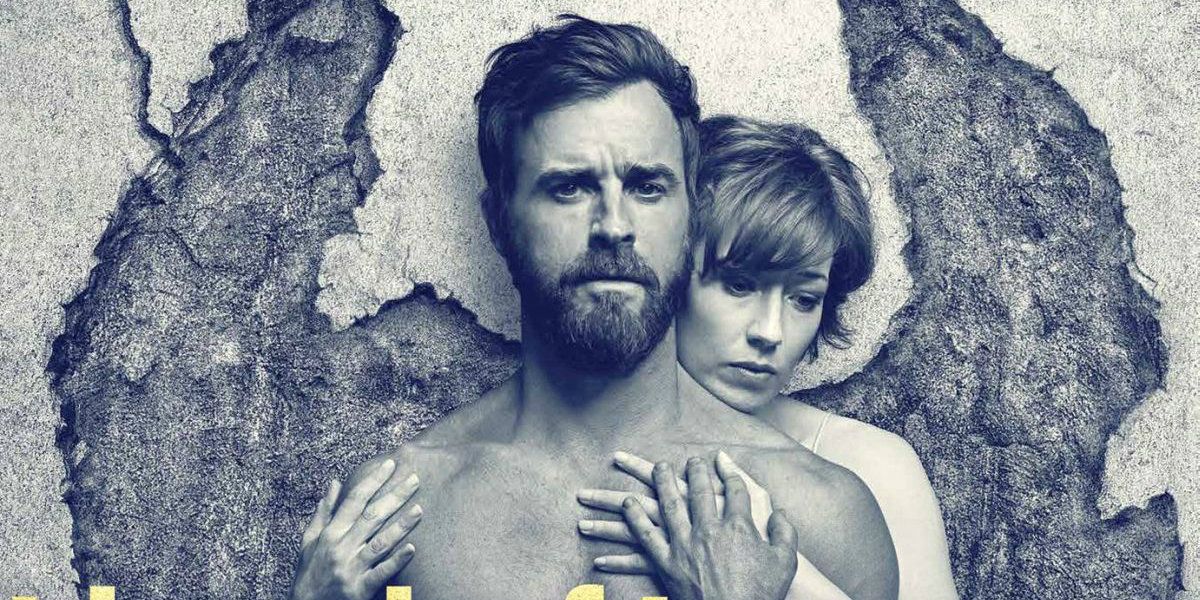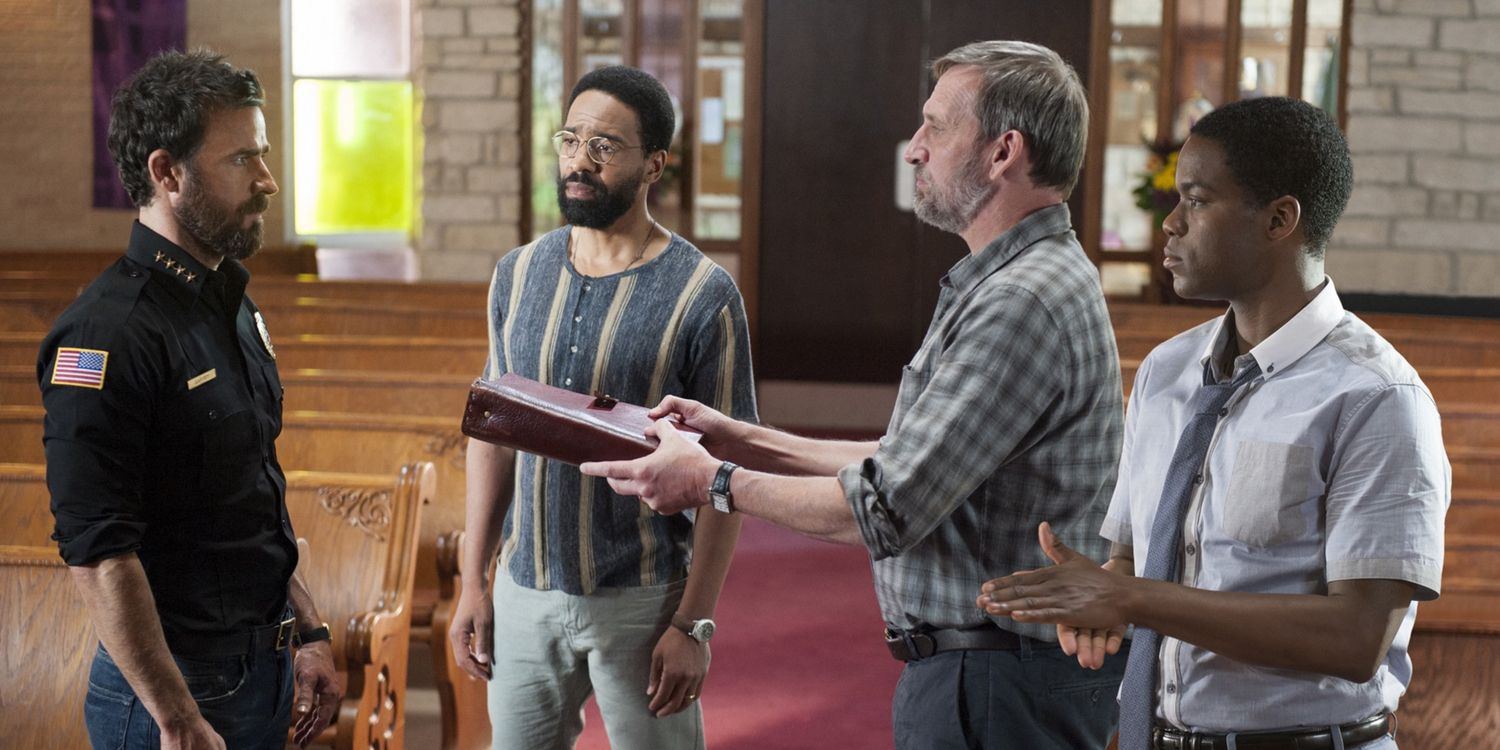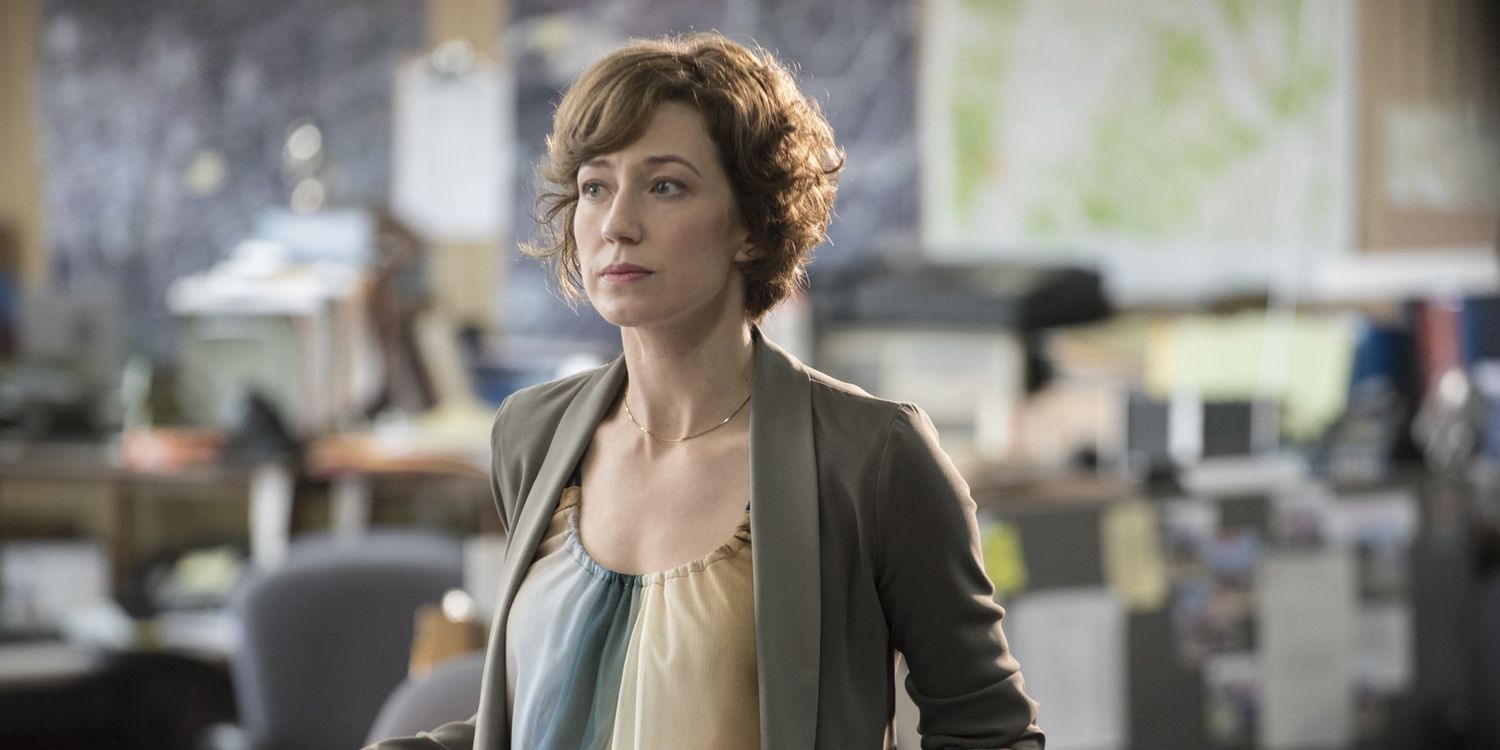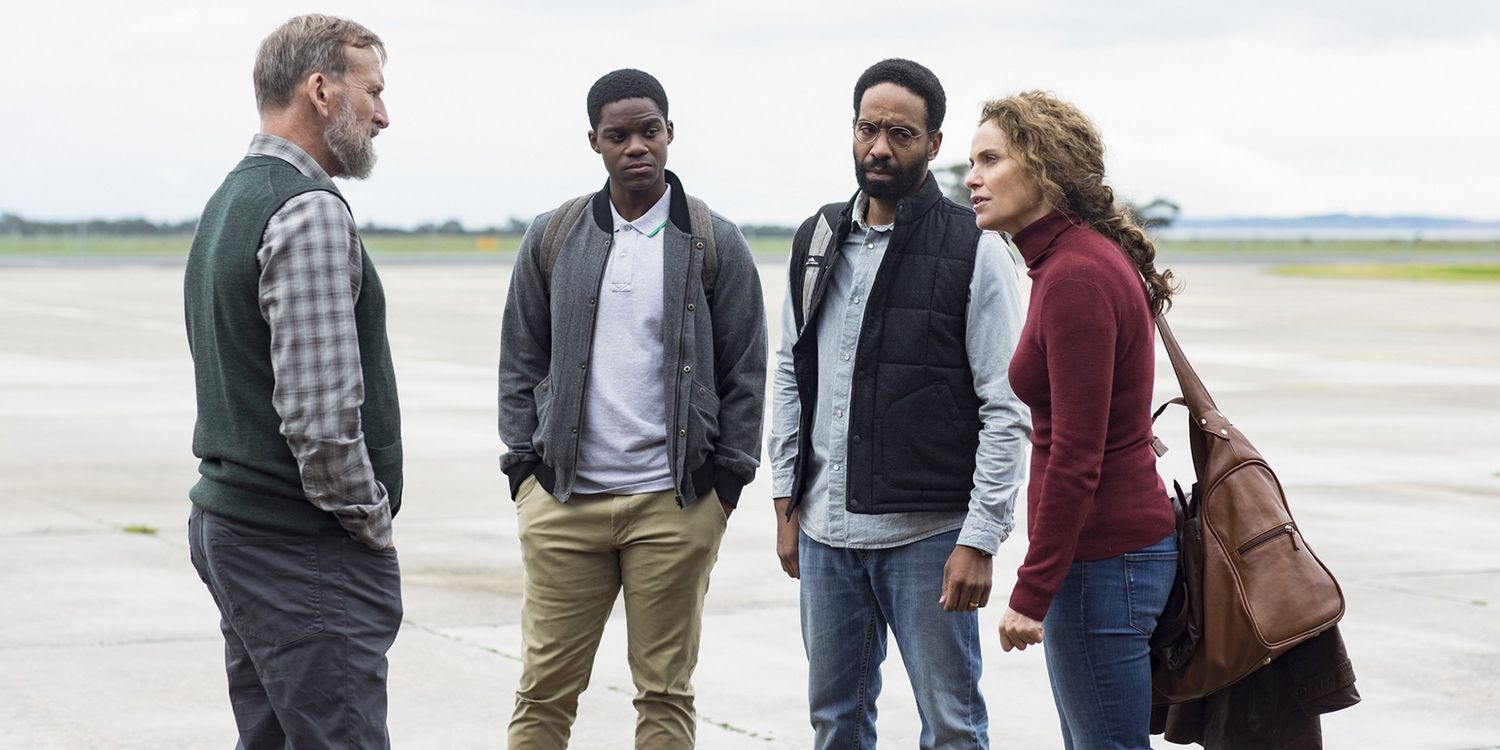The Leftovers isn't a faith-based series, but the story's proximity to the notion of faith and organized religion, as it pertains to the institutions many turn to in search of answers and meaning in a world that, for the most part, has ceased to have much of either for 98 percent of the population, could classify it as faith-adjacent. For the majority of those titular leftovers, the world has already come to an end, leaving them to wonder why or how it could be that millions of people vanished in an instant. With little in the way of hard, scientific evidence to go on, and with the years since the event known as the Sudden Departure stacking up, the need for belief remains high. Belief that there was a reason or a purpose for the Departures, that those who vanished are in a better place, and, certainly, belief that it won't happen again, even though, as Christopher Eccleston's Matt Jamison points out in the series' terrific final season premiere, religion is full of examples of something significant happening around the number seven.
So no, The Leftovers is not a faith-based series. Instead, like the novel by Tom Perrotta that served as the foundation for the show, faith and religion are there as a framework of sorts, giving both context and motivation for the characters as they prepare for a dubious seven-year anniversary of the day the world was forever changed. Interestingly, though, with the series beginning its final eight-episode run, coming off one of the all-time great sophomore seasons in television history, the notion of faith extends to The Leftovers itself and the question of how it will reach a satisfying conclusion. That's partly due to the circumstances of its narrative and partly because of the credentials of its co-creator and showrunner Damon Lindelof.
To its credit (and the relief of its writers no doubt), the belief that The Leftovers can deliver a rewarding ending, despite there being a similarly tantalizing, seemingly unanswerable question at its core, is due in large part to the fact that the show is not now, nor has it ever been, billed as a mystery headed toward any kind of firm resolution. Lindelof, Perrotta, and HBO more or less announced as such with the adoption of the credo "Let the mystery be" in season 2, a phrase siphoned off the new and improved music used in the opening credits. Not poking the mystery is freeing on one hand, but on the other it puts The Leftovers in a challenging place; one where it must fly the narrative as near the notion of the Departure and what is or is not coming on the event's seven-year anniversary without landing on definitive answers – or, worse yet, giving the audience reason to think it might.
There will no doubt be a contingent of viewers hoping for answers and who will perhaps even be dismayed over what may be a lack of closure for what the Departure is and why it happened. But for those turned on to The Leftovers, first for its artful and sometimes harrowing navigation of the complicated emotions and psychological reactions to an event as traumatic as the one its characters experienced, and second for just how well-drawn and acted those characters are – thanks to outstanding performances from Justin Theroux, Carrie Coon, Regina King, Kevin Carroll, Amy Brenneman, and the aforementioned Eccleston – the final season steers the narrative and the viewing faithful toward something more rewarding than the promise of an answer.
As it did in on occasion in season 1, and then with greater regularity in season 2, the final season finds success in its storytelling by applying a laser focus to its characters. Shifting the perspective on an episodic basis from Kevin to Nora to Matt and even Scott Glenn's Kevin Garvey Sr. gives The Leftovers a far greater range of personalities and tone to play around with. Part of that is due to the emotional complexity of the characters and the tonal variances of their reactions to the situation they're all in, and part of it is due to how well the show balances those elements against the enormity of the narrative itself.
As was discovered in season 2, a big part of striking the right balance is injecting humor into the show and letting it be weird when it needs to be weird. (Sending Kevin to a hotel in the afterlife, first to assassinate Patti and then to karaoke his way out of purgatory is pretty weird.) Introducing those elements effectively pulled back on the extreme sorrow of season 1, affording the characters and the story more room to breathe and move around. There's still a reliable undercurrent of melancholy – it's particularly present in Max Richter's beautifully emotive score that has become such an integral part of the show's emotional core it's hard to think the series would have been successful without it – but even a huge, potentially devastating moment, like the one that answers the question of what happened to Jarden (aka Miracle, Texas) and the Guilty Remnant following the events of the season 2 finale, doesn't land like a rock to the face.
The upswing to the show's sense of freedom is also present in how much time the third season spends shifting the story to Australia, setting up little mysteries along the way. It's there in Matt's belief that Kevin is in someway a messianic figure or in Kevin Sr.'s obsession with the story of Noah and his belief that a great flood is on its way. But it's also there in the time Lindelof and the other writers devote to picking up seemingly discarded, one-off threads and giving them new life (however brief) as a means of making the experience of The Leftovers as a whole far more rewarding from a storytelling standpoint. It's a feeling that carries through almost the entire season – critics were given the first seven of the final season's eight episodes – as the series builds a complex, thematically rich narrative around a group's continued search for a system (any system) of belief and the desire for closure when none may be possible.
While the series may not be headed to a typical sense of closure, the premiere brings a number of storylines – some still pressing and others perhaps long forgotten – to a close with absolute certainty. Following an opening sequence tasked with following in the footsteps of season 2's grand prehistoric introduction and that has a musical cue seemingly tailor-made for The Leftovers itself, the series puts a quick, decisive end to Meg, Evie, and the question of what happened to Jarden after the GR turned it into Sodom and Gomorrah. Any other show and a drone strike to obliterate a fringe group inciting a riot would seem off, but here it's a fitting reminder of just how much the world has changed and how extensively the rulebook has been rewritten.
The same goes for the unexpected return of Michael Gaston's dog-shooting Dean, his theory that dogs are infiltrating the government at the highest levels, and his eventual death while trying to murder Kevin. It's not an end that was expected, or even one that was necessary for the narrative to continue. Instead it points to how aware the series is that this is the end, and that Damon Lindelof and Tom Perrotta will bring conclusion to its characters one way or the other, even if, like the ending of an aged Nora living abroad under an assumed name suggests, the final season will include even more mysteries the audience may have to simply let be.
Next: The Leftovers Season 3 Teaser Trailer: The End is Near
The Leftovers season 3 airs Sunday night @9pm on HBO.
Photos: Ben King/HBO




